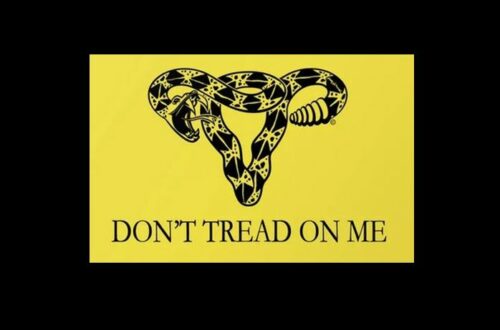A remarkable dream and a solemn vow
Genesis 28:10–19 is part of the lectionary readings for the seventh Sunday after Pentecost, which is July 19th. In 25:29–34, we learn how Esau bartered away his inheritance rights to Jacob. Sometime later, Jacob used blackmail and deceit to take Esau’s blessing from him (27:1–40).
Officially, Jacob was now the more prominent of the two brothers, and Esau detested Jacob for it. Esau’s grudge was so intense that he wanted to kill Jacob.
Esau knew he could never profit from murdering his fraternal twin while their father still lived. Esau guessed that Isaac would soon die (v. 2).
In ancient times, it would be customary for the entire family to gather together to grieve the loss of their loved one. Esau concluded that such a situation would be a perfect time for him to get rid of his younger brother (v. 41).
When Rebekah heard about Esau’s murderous plot, the mother took it seriously. She feared that she might lose both sons, perhaps reasoning that if Esau killed Jacob, another member of the clan would avenge the death by murdering Esau.
So, Rebekah warned her favorite son. The mother’s advice was for Jacob to hide out among distant relatives until Esau’s anger cooled (vv. 42–45).
Rebekah reasoned that it would be better if Jacob were to leave home with his father’s permission, rather than to desert the family suddenly and without warning. Consequently, Rebekah approached Isaac on Jacob’s behalf.
The mother chose not to tell her husband about Esau’s plan involving murder, perhaps because Isaac would not have believed such a tale about his favorite son. Instead, Rebekah slyly hinted at another reason for Jacob to leave.
Many years earlier, when Isaac himself had been ready to marry, his father had carefully sought a wife for Isaac from among their relatives (chap. 24). Until this point, however, Isaac had neglected to do the same for his sons. As a result, Esau had married women from among the Hittites (26:34).
Jacob, at the age of 77, had not yet taken a wife. According to the custom of the time, Rebekah worked on household chores with the other women of her extended family.
Rebekah told her husband that their daughters-in-law, the Hittite wives of Esau, were making Rebekah’s life unbearable. She surmised that things would only get worse if Jacob also married a Hittite woman (27:46; see 26:35).
Isaac took the hint. He ordered Jacob not to marry a Canaanite woman (28:1); instead, he was to leave immediately for Paddan Aram (that is, northwestern Mesopotamia; also, vv. 5–7) and journey to the household of his grandfather, Bethuel. Jacob was to find and marry one of his cousins on his mother’s side of the family, particularly, one of his uncle Laban’s daughters (v. 2).
Isaac also repeated the family blessing on Jacob. In the previous episode (27:27–29), Isaac prayed that the Creator would always give Jacob plenty of dew for healthy crops and abundant harvests of grain and wine. Isaac also foretold that many nations would one day become the servants of Jacob’s descendants and that he would rule over his extended family members.
In 28:3–4, Isaac again prayed for God’s richest blessings on Jacob. It was Isaac’s desire that the all-powerful Lord would give Jacob many descendants, who in turn would become a great assembly of nations.
Isaac foretold that the land of Canaan, where he and his father lived as foreigners, would one day become the possession of Jacob’s descendants. Jacob received these blessings of the Abrahamic covenant because the Creator wanted the patriarch to have them, not because of his shrewdness and trickery.
For the first time in Jacob’s life, he left Beersheba (v. 5) and set out on his nearly 500-mile trip for Haran (v. 10). One of Jacob’s stops along the way was at a place close to the town of Luz (Gen. 28:11; see v. 19).
It is remarkable that Jacob could make it this far on the first day of his journey. Ordinarily, it would have taken three or four days to travel the 70 miles from Beersheba to Luz. Yet, some have suggested that since Jacob was fleeing from Esau, adrenaline (produced by intense apprehension) might have enabled the younger twin to travel that distance before stopping.
In any case, Jacob chose Luz for his night’s stopover because darkness overtook him there. In that day, people living in the Fertile Crescent usually did not journey at night due to the threat of attack from marauders.
Many years earlier, Jacob’s grandfather, Abraham, had built an altar near the spot and worshiped the Lord through prayer and sacrifice (12:8). We do not know whether Jacob recognized the significance of his campsite. Yet, Bethel would become a holy place for Jacob as it had been for Abraham.
Jacob, being weary from his journey, decided to lay down and sleep. He took a nearby, elongated stone and placed it under his head before drifting off.
Jacob’s use of a stone to support his head might seem strange to us, but in ancient times, stones and even pieces of metal were used as convenient headrests. Also, many ancient cultures viewed certain types of stones as being magical or sacred.
Perhaps Jacob felt the stone he used as a pillow contained some spiritual power. In a short while, what looked like an ordinary object would be transformed into a sanctuary, for Jacob would come to regard it as the residence of God (28:22).
Jacob experienced a dream in which he saw a stairway that reached from earth to heaven (v. 12). Some mistakenly envision this to be a simple wooden ladder with rungs. In actuality, Jacob’s stairway resembled a large stone ramp with steps that mounted the sloping side of a Mesopotamian temple-tower called a ziggurat.
Such a structure was square at its base and pyramid-like in shape. At the apex of this massive, lofty, and solid-brick edifice was a small shrine that supposedly served as the gateway between heaven and earth (11:4). Sometimes the shrine was covered with a blue veneer so that it would more easily blend in with the sky, the reputed celestial home of pagan gods and goddesses.
In Jacob’s dream, he saw angels from the Lord going up and coming down the other-worldly ramp (Gen 28:12; John 1:51; 4:11–12). The activity of celestial emissaries in the spot where Jacob slept indicates that the locale was sacred, representing the meeting point between the human sphere and the heavenly realm (Gen 28:19).
As Jacob slept, he saw the Creator (somehow manifested in human form) standing at the top of the stairway or ramp. It’s also possible Jacob experienced the divine presence either beside or directly over him.
The Lord spoke to Jacob, identifying Himself as Yahweh, the God of Abraham and Isaac. The ever-living, all-powerful Creator was making Jacob the recipient of the same covenant promises bestowed on his grandfather and father.
In particular, Jacob and his descendants would inherit Canaan (v. 13). Moreover, Jacob’s offspring would become as numerous as the dust of the earth. Indeed, they would eventually cover the promised land from east to west and from north to south.
Furthermore, all the families of the earth would be blessed through Jacob and his descendants (v. 14). The idea is that the patriarch and his offspring would become a channel or source of blessing for others.
It’s also possible that verse 14 is declaring that others would regard Jacob as a noteworthy example of divine blessing. In this case, they would use his name and that of his descendants as they pronounced blessings on one another (Gen. 48:20; Ruth 4:11).
When Jacob first began his hastily-arranged trip to Haran, we can imagine him wondering about many things, such as the following. What will become of me? Will I ever see my home again? Am I really in line to receive the covenant blessings?
In the dream, the Lord addressed Jacob’s concerns. God was not like heathen deities, whom people of the day superstitiously believed protected them only within specific regions. The Creator promised to be with Jacob and sustain him wherever he traveled, even during his prolonged exile from the promised land.
Moreover, God pledged to bring Jacob back to Canaan. In fact, the Lord would be with Jacob constantly, ensuring that all the covenant promises were fulfilled (Gen 28:15).
When Jacob woke up, he realized that the Lord was in the place where the patriarch had been resting and he had not even been aware of it (v. 16). Given the solemnity of the occasion, it is understandable that Jacob was afraid. The emotion was most likely a mixture of terror, reverence, and adoration.
Jacob reasoned that the spot where he lodged for the night was especially holy. The locale was awesome, being none other than the dwelling place (or house) of God and the gateway to heaven (v. 17).
Jacob got up early the next morning, took the elongated stone he had used as a headrest, and set it upright as a pillar. In ancient times, such a stone could be used as a shrine (as in this case), a burial object, or a boundary marker.
The stone would serve as a memorial of the vision Jacob had seen at the campsite. The sacred object would also be a reminder of the ramp that stretched from earth to heaven and on which the Creator stood.
Jacob consecrated (or set apart) the stone by pouring olive oil over it (v. 18), which was a widespread practice in ancient times (Exod 30:25–29). The oil also stained the stone so that others who came along later could properly identify it.
Next, Jacob called the place “Bethel” (Gen 25:19), which in Hebrew means “house of God.” Prior to this episode, the town had been called “Luz,” which means “almond tree.”
Bethel was in the hill country of Canaan, about 12 miles north of Jebus (later Jerusalem) and close to Ai. By Jacob’s day, the bare mountaintop near Bethel had served as a center of pagan worship for hundreds of years. “Bethel” may have been the name of the mountaintop sanctuary, while “Luz” referred to the town nearby.
Verse 19 seems to refer to Bethel as a place and Luz as a town. Early Hebrew manuscripts of Joshua 16:2 indicate that Bethel and Luz were separate but close localities.
The Lord’s promise to always be with Jacob was so meaningful to him that he vowed to make Yahweh his God. Jacob did not ask the Creator for either fame or riches.
In a sense, Yahweh used the seminal occasion to establish an ever-deepening, personal relationship with Jacob. By faith, he took God at His word concerning His promises (Gen 28:15; Heb 11:21).
Jacob translated the general promises the Creator had made into specifics relating to the patriarch’s situation. He would trust the Lord to remain with Jacob, protect him on his journey, give him food and clothing, and one day bring him safely back to Canaan (Gen 28:20–21). By reiterating the covenantal promises, the patriarch claimed them as his own.
Jacob then designated the rough stone column as “God’s house” (v. 22). This meant that the pillar would serve as a memorial and place for worshiping the Creator.
Jacob also pledged to give the Lord one-tenth of the patriarch’s possessions. By this act (whether a one-time gift or a yearly offering), he expressed his gratitude to God, acknowledged the Creator as Jacob’s God and King, and declared the patriarch’s willingness to commit everything to the Lord in wholehearted trust. Exactly to whom Jacob paid his tithe is left unspecified.
In ancient times, tithing was the practice of giving a tenth of one’s income, whether in material goods or money, to God. That it was done by both Abraham (14:18–20) and Jacob (28:22) shows that it was an ancient custom established centuries before the Law of Moses prescribed it (Lev 27:30–33).
Throughout Israel’s history, tithes were used to support the priesthood. Also, every third year a special contribution was made for the poor, either out of the tithe or in addition to it (Num 18:21; Deut 26:12).
Jacob’s experience at Bethel had a profound effect on his life. Years after his first visit to this locale, when he fled from Laban, his father-in-law, Jacob received another divine revelation from the God of Bethel (Gen 31:13).
Jacob eventually returned to Bethel when he came back to the promised land (35:1–14). It was there that the Creator changed Jacob’s name to Israel, which permanently linked the city that grew there to him and his future descendants (v. 10).
Key ideas to contemplate
While Jacob was on the run, fearing for his life, God spoke to the patriarch in a dream. The Creator promised Jacob that the Lord would always be with the patriarch, even assuring him that God would look after Jacob’s descendants.
At times it is easy for us to doubt God’s presence when something unwelcome occurs in our lives. Yet, the Lord does not get angry or leave us because our faith wavers. Instead, He indicates to us in many ways that He is always close to us.
It’s easy to tell someone not to be afraid when everything seems to be going well, but when a loved one, friend, or coworker experiences an unexpected hardship or encounters an unforeseen tragedy, that’s a different matter. Automatically, it seems, our fear kicks in.
Fear has positive value when it keeps us from taking risky chances. However, fear has negative value when it begins to undermine our faith and sabotage our walk with the Lord.
In life’s darkest, fear-inducing moments, the truth that God is our Shepherd and Guide can be reassuring. Just as shepherds provide lush meadows for their sheep to graze and peaceful streams for them to drink, so the Lord will provide for the needs of His children (Ps 23; Rev 7:15–17).
The Creator has surely proven Himself to be trustworthy in meeting our needs in the past. Likewise, He can be trusted to provide our needs in the future.




